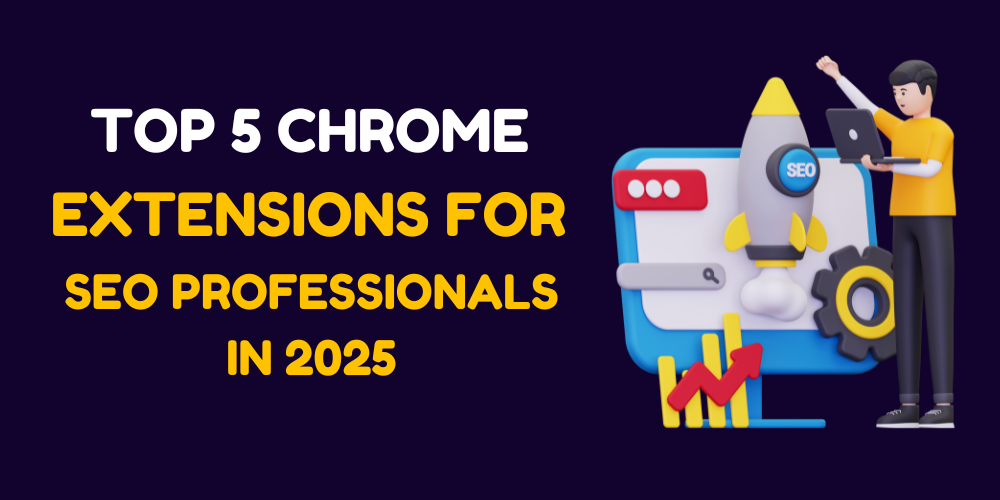How to Optimize Content for AI Search Engines
The rise of artificial intelligence (AI) has transformed the way search engines operate. Traditional search engines like Google are increasingly relying on AI algorithms to deliver more accurate, personalized, and contextually relevant results. As a result, content creators and marketers must adapt their strategies to optimize for AI search engines. In this blog, we’ll explore what AI search engines are, how they differ from traditional search engines, and actionable steps to optimize your content for AI-driven search.
What Are AI Search Engines?
AI search engines leverage machine learning, natural language processing (NLP), and other AI technologies to understand user intent, context, and content relevance. Unlike traditional search engines that rely heavily on keywords and backlinks, AI search engines focus on semantic understanding, user behavior, and real-time data to deliver results.
Examples of AI-driven search engines include:
- Google’s RankBrain: An AI algorithm that helps process search queries and rank content.
- Microsoft Bing: Uses AI to enhance search accuracy and personalize results.
- ai: An AI-powered search engine that provides conversational, context-aware answers.
These engines prioritize content that aligns with user intent, provides value, and is structured in a way that AI can easily interpret.
How AI Search Engines Differ from Traditional Search Engines
- Focus on User Intent: AI search engines prioritize understanding the “why” behind a search query rather than just matching keywords.
- Semantic Search: They analyze the meaning and context of words to deliver more relevant results.
- Personalization: AI engines use data like location, search history, and preferences to tailor results.
- Real-Time Updates: AI algorithms can process and rank new content faster than traditional engines.
To succeed in this new landscape, your content must be optimized not just for keywords, but for context, relevance, and user experience.
How to Optimize Content for AI Search Engines
Here are actionable strategies to ensure your content ranks well on AI-driven search engines:
- Focus on User Intent
AI search engines prioritize content that aligns with user intent. To optimize for this:
- Identify the purpose behind search queries (informational, navigational, or transactional).
- Create content that directly addresses these intents.
- Use tools like Google’s “People Also Ask” or AnswerThePublic to understand common questions related to your topic.
- Leverage Natural Language Processing (NLP)
AI engines use NLP to understand the context and meaning of content. To align with NLP:
- Write in a conversational tone.
- Use long-tail keywords and phrases that mimic how users speak.
- Avoid keyword stuffing and focus on readability.
- Structure Content for Readability
AI algorithms favor well-structured content that’s easy to understand. Use these tips:
- Break content into short paragraphs and use subheadings (H2, H3).
- Incorporate bullet points and numbered lists.
- Use schema markup to help AI understand your content’s structure.
- Optimize for Featured Snippets
AI search engines often pull information from featured snippets to answer user queries. To increase your chances of appearing in snippets:
- Provide clear, concise answers to common questions.
- Use tables, lists, and step-by-step guides.
- Target question-based keywords (e.g., “How to,” “What is”).
- Use Structured Data and Schema Markup
Structured data helps AI engines understand the context of your content. Implement schema markup for:
- Articles
- FAQs
- Reviews
- Products
- Events
Tools like Google’s Structured Data Markup Helper can simplify this process.
- Create High-Quality, Comprehensive Content
AI search engines prioritize content that provides value and covers a topic thoroughly. Focus on:
- Writing in-depth articles (1,500+ words).
- Including multimedia elements like images, videos, and infographics.
- Updating content regularly to keep it relevant.
- Optimize for Voice Search
With the rise of voice assistants like Siri and Alexa, optimizing for voice search is crucial. To do this:
- Target conversational keywords (e.g., “best Italian restaurant near me”).
- Write in a natural, conversational tone.
- Ensure your website is mobile-friendly, as most voice searches happen on mobile devices.
- Monitor and Analyze Performance
Use analytics tools to track how your content performs on AI search engines. Key metrics to monitor include:
- Click-through rates (CTR).
- Bounce rates.
- Time on page.
- Keyword rankings.
Tools like Google Analytics, SEMrush, and Ahrefs can provide valuable insights.
- Build Authoritative Backlinks
While AI search engines focus on content quality, backlinks still play a role in establishing authority. To build high-quality backlinks:
- Create shareable, link-worthy content.
- Reach out to industry influencers and websites for collaborations.
- Use guest blogging to expand your reach.
- Stay Updated on AI Trends
AI technology is constantly evolving. Stay ahead by:
- Following industry blogs and news.
- Experimenting with AI tools like ChatGPT for content creation.
- Adapting your strategies based on algorithm updates.
Tools to Help You Optimize for AI Search Engines
Here are some tools to streamline your optimization efforts:
- Google’s RankBrain: Analyze how your content performs with AI algorithms.
- Surfer SEO: Optimize content for semantic search and NLP.
- Clearscope: Identify relevant keywords and improve content relevance.
- SEMrush: Track rankings, backlinks, and performance metrics.
- Yoast SEO: Optimize content for readability and structured data.
The Future of AI Search Engines
As AI continues to advance, search engines will become even more intuitive and user-centric. Content creators must embrace these changes by focusing on quality, relevance, and user experience. By optimizing for AI search engines now, you’ll be well-positioned to thrive in the future of search.
Conclusion
Optimizing content for AI search engines requires a shift from traditional SEO tactics to a more holistic approach. By focusing on user intent, leveraging NLP, structuring content effectively, and staying updated on AI trends, you can ensure your content ranks well in the age of AI-driven search. Start implementing these strategies today to stay ahead of the curve and maximize your online visibility.
By following this guide, you’ll not only improve your rankings on AI search engines but also create content that resonates with your audience and delivers real value. Happy optimizing!




